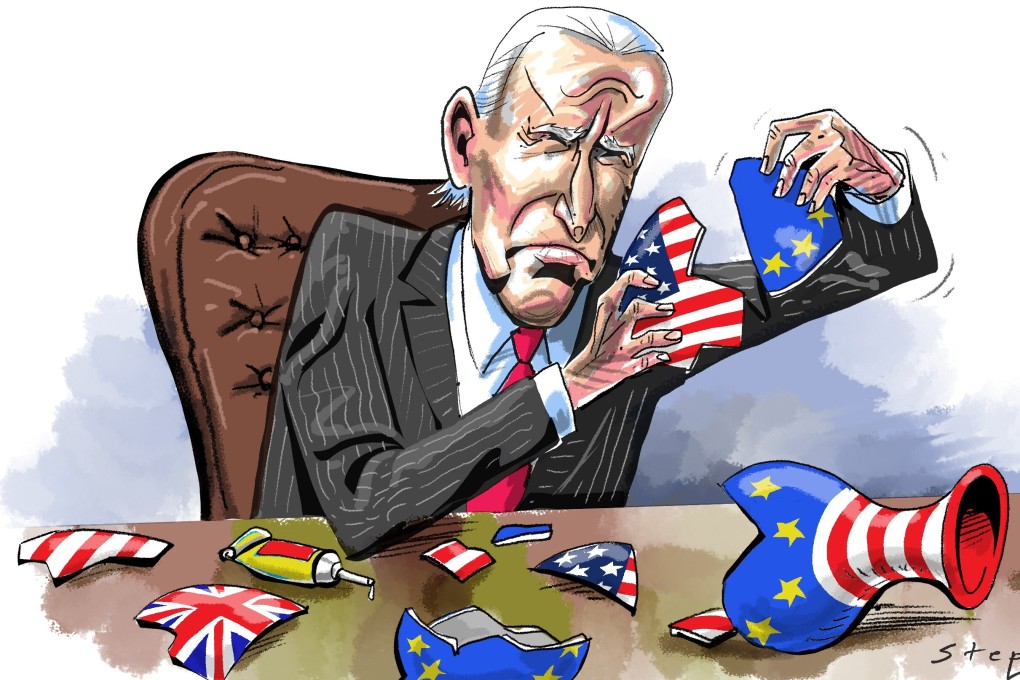Opinion | Why Joe Biden will struggle to rebuild the decaying transatlantic alliance to counter China
- The damage done to transatlantic ties under Trump can’t be easily fixed. The US-led alliance could be strengthened if America’s allies also confront China – but almost all enjoy strong economic ties with Beijing

According to the Financial Times, the European Union has recently drafted a plan to call on the United States to seize a “once-in-a-generation” opportunity to form a new global alliance, burying the tensions of the Trump era and meeting the “strategic challenge” presented by China.
This is probably easier said than done. The damage done to transatlantic ties is not a hairline crack that can be easily filled. Trump is the rare US president who called the North Atlantic Treaty Organisation “obsolete”, but he is certainly not the first one who fretted that Europe had been getting a free ride on the US security umbrella for too long.

04:35
‘Welcome back America’: world leaders react to Joe Biden’s victory in US elections
And the more the allies pay their dues, the quicker the US might shake off its responsibilities and withdraw from Europe.
